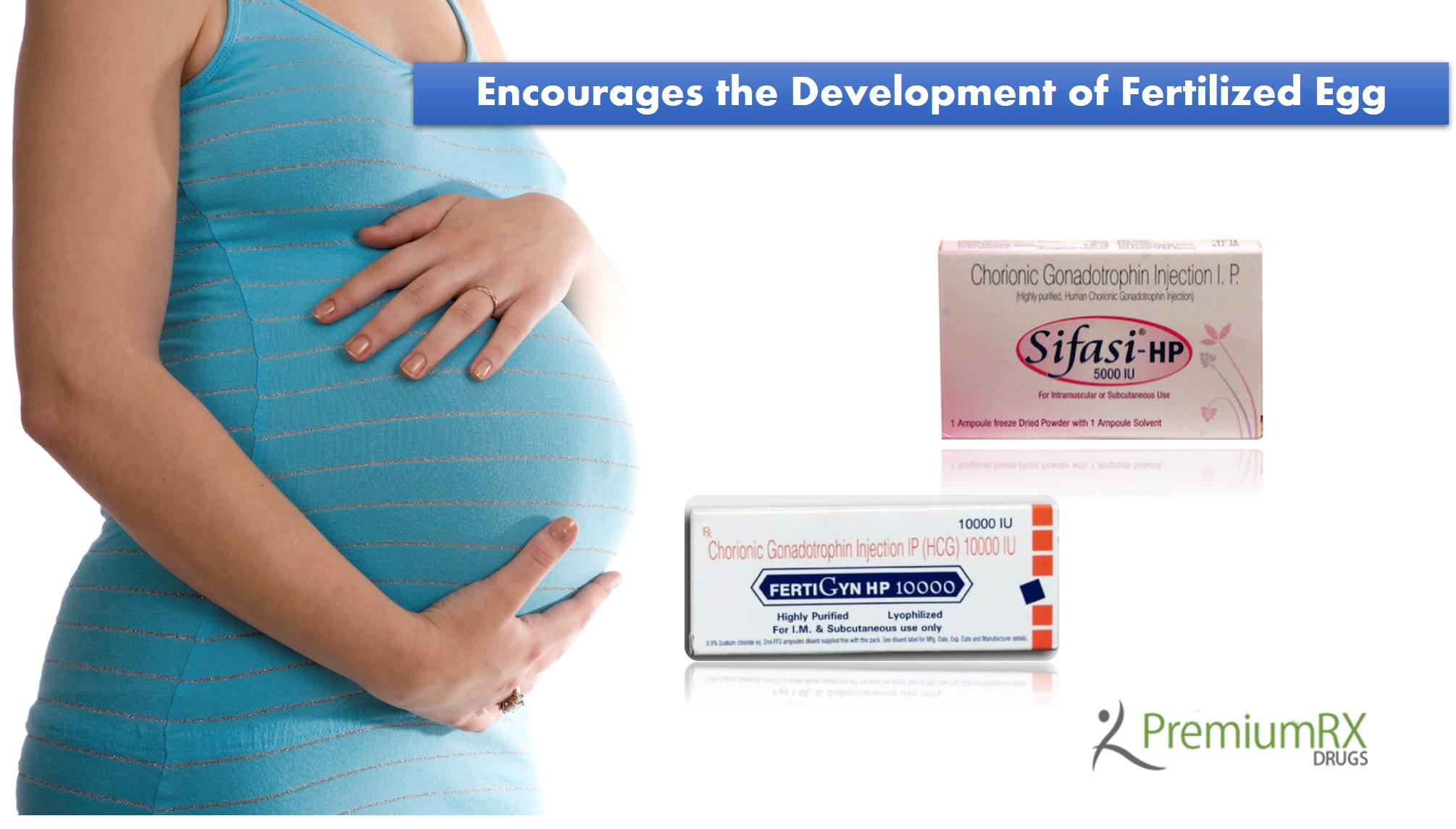Human chorionic gonadotropin is used to be injected under the skin or into a muscle. It can help a woman become pregnant. When you use this medicine at home, your health care provider will give you specific instructions on how and when to inject the medication. You are not allowed to self-inject if you are not aware of the injection usage and how to dispose of the syringe properly.
You should seek immediate medical help if you have noticed any of the following signs of blood clots: extreme dizziness, redness, warmth, pain, confusion, numbness, severe headache, or tingling in your arm.
What is Human Chorionic Gonadotropin?
Human chorionic gonadotropin is an HCG hormone, also known as the pregnancy hormone, which plays a key role in maintaining pregnancy. It is mainly found in women’s blood and urine throughout pregnancy. Your health care specialist can detect the presence of the HCG hormone after implantation has occurred in the uterus within two to three weeks of pregnancy. The treatment helps in ovulation and treats infertility issues in women. It supports the healthy development of the egg in a woman’s ovary and stimulates the release of an egg at the time of ovulation. HCG shots are also beneficial for men with low sperm count. Moreover, it is prescribed to young boys in case their testicles have not dropped into the scrotum normally. A pituitary gland disorder causes the condition.
Does HCG work in Pregnancy?
In pregnant women, the cells responsible for the growth of the placenta secrete the HCG hormone. The HCG hormone plays a role in encouraging the development of the fertilised egg after it adheres to the wall of the uterus and supports its growth. After the formation of the placenta, the HCG hormone is released. The amount of HCG hormone increases as the embryo grows bigger. This indicates that an adequate amount of HCG is required to maintain during pregnancy.
What needs to be discussed with your health care specialist before buying HCG?
The use of an HCG shot is contraindicated if you have:
- Ever had an allergic reaction to HCG or hormone-related cancer, or
- Early puberty
In case you may experience any of these health issues, you may require dose adjustments for the safe use of the medication:
- Epilepsy
- Premature puberty
- Migraines
- An ovarian cyst
- Heart disease
- Kidney disease
- Asthma
- Thyroid or adrenal gland disorder
- Undiagnosed uterine bleeding
- cancer of the uterus, ovary, breast, pituitary gland, or hypothalamus
Do not use this hormonal treatment if you are pregnant. Inform your health care specialist right away if you conceive during the treatment. Moreover, there is less information on whether the medicine passes into breast milk or not; avoid using the injection without telling your healthcare specialist about breastfeeding.
How should HCG be used?
Inject HCG exactly as your health care specialist told you. Do not use more than the recommended amount. Carefully follow the directions on the prescription paper.
HCG is a medicine which is given as an injection into the muscle. Your health care specialist will inject HCG in his/her clinic or will show you how to inject the medicine at home. You can self-inject the medicine once you fully understand how to give the injection. You must know that the needle should be used only once and disposed of properly. Make sure you visit your health care specialist regularly to check whether the medication is helping your condition. Try not to miss any appointments. Ask your health care specialist if you have questions related to the use of this medication.
What are the possible side effects?
HCG shots, when used during early pregnancy, may cause many side effects that must not be ignored. It is also believed to worsen some of the pregnancy symptoms, including pain, sensitivity in the breasts, and queasiness. Have a look at the side effects of HCG injections, which must be taken into consideration, and thoroughly consult with a healthcare provider. Discontinue treatment and get immediate medical help if you notice any of these signs of an allergic reaction, including difficulty breathing, hives, swelling of the face, lips, throat or tongue. Some women who have used this medicine complain of developing a condition called ovarian hyperstimulation syndrome, also known as OHSS, once the first treatment cycle is finished. This condition can put the user’s life at risk. Talk to your health care provider and inform them if any of the following symptoms of OHSS affects you:
- Weight gain
- Stomach pain and swelling
- Severe pelvic pain
- Swelling of the hands and legs
- Nausea or vomiting
- Swelling of the hands and legs
- Urinating less than normal
- Diarrhea
The use of HCG in a young boy may cause early puberty. Inform the health care specialist if the body shows early signs of puberty, such as pubic hair growth, increased acne or sweating, and a deepened voice.
Latest posts by Marie (see all)
- What Is Florexa Cream? Uses for Facial Hair Reduction Explained - February 13, 2026
- How Demelan Cream Helps Reduce Melasma and Uneven Skin Tone - February 9, 2026
- Why Dermatologists Trust Tretinoin Gel/Cream for Long-Term Skin Repair? - February 6, 2026




